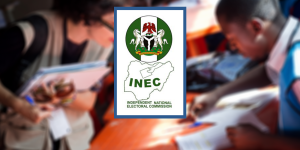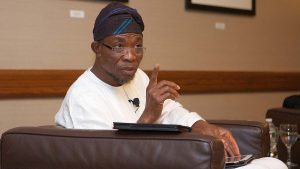COVID-19 AND OSUN LG PARLIAMENTARY SYSTEM
With government revenues collapsing following the fall in oil prices, mitigating the health emergency and subsequent economic ramifications from COVID-19 will be an unprecedented challenge for Nigeria’s policymakers. Economic stability beyond COVID-19’ on Nigeria’s governance structure, Osun State inclusive called for reduction in government expenditures. It will be difficult for Osun State to operate presidential system at the local government level under the present covid-19 pandemic.
Apparently, the outbreak of coronavirus (COVID-19), a pandemic that has shrunk the economic fortunes of most countries of the world, Nigeria inclusive may have also provoked a thought amongst the political elites and power brokers to revisit Nigeria’s governance structure and perhaps, return it to a less expensive and cumbersome type of government. Then, enter calls for a reversal to the parliamentary system as opposed to the current Presidential system.
The parliamentary system will ensure that the Executive, Legislature and Judiciary are on the same page. The system will iron out all these things; that is why we have thrown it up for Nigerians to look at, discuss and see that it will help us in proffering solutions to some of the problems of our country.
Under the local government parliamentary system in Osun, the third tier of government would operate in line with the governance model of the 1999 Constitution. Misunderstood in different forms, the Osun Local Government Parliamentary System is not in contrast with the 1999 Constitution of the Federal Republic of Nigeria.
The system which provides for only parliamentarians at the local government setting operates with Councillors; a new method of governance away from the customary presidential system where the Chairman exercises full Executive Powers as practiced over the years.
The chairman is a product of democratically elected Councilors who are lawmakers at the council level like the British Prime Minister who is elected by members of parliament (The Prime Minister is an MP and head of the government. The leader of the party that wins the most seats in a general election is appointed). In Osun He/She is elected by his/her colleagues who have been duly elected by citizens of respective wards across the state.
The arrangement is not in any way an aberration of the 1999 constitution as it fully defines the relevance of Section 7(1) of Nigeria’s Constitution and Section 22 of the LG(Administration) Law of Osun State 2002 as amended. The elected Chairman among other councillors will exercise full executive powers over the local government just as the Prime Minister does in other parliamentary democracies. Is British parliamentary system not democratic?
The new system reduces cost of governing the third-tier of government in post covid-19 economy, eliminates local government wide campaigns by prospective LG Chairmen and their deputies as well as curbing wastage in providing for two more offices since the Chairman and Vice Chairman are councillors and maintain their status quo as Councillors. A good attribute of this is that the chairmen and vice-chairmen can be removed and replaced if they under-perform or lose the confidence reposed in them by their colleague
I have read some comments offline and online, when some ignorant and paid commentators have started insinuating that Aregbesola has violated the constitution.
So where did Hon Oluwole Oke find the supposedly “loophole” or authority in law, in asking for presidential system in Osun State? Hon Oluwole Oke allegation is mischievous and those making the allegation do not understand the Nigerian constitution.
For those Nigerians and their supporters who are ignorant of the Constitution of the Federal Republic of Nigeria 1999 as amended, it provides for parliamentary and presidential system of government at the local government level.
The lawmaker representing Obokun/Oriade Federal Constituency of Osun State in the House of Representatives, Hon. Oluwole Oke is ignorant on issues of presidential and parliamentary systems in Nigeria. So rather for him to show appreciation for what Rauf Aregbesola has done to uplift democracy in Nigeria, he is bringing in political and misguided connotation to it. There was a statement credited to the lawmaker representing Obokun/Oriade Federal Constituency of Osun State in the House of Representatives, Hon. Oluwole Oke, which has faulted what he called the subsisting parliamentary system of government in the running of local governments across the state. Hon. Oke who stated this weekend in Osogbo, the Osun state capital, described local government administration in the state as “an aberration which should be dispensed with without further delay.”
It is very unfortunate that some Nigerians including Hon Oluwole Oke and some public office holders are too lazy to read the elementary sections of our Constitution, some of which are self explanatory. Aregbesola’s critics like Hon Oluwole Oke are purblind and ignorant of the provision of 1999 constitution that concerns local government administration. Now, let us examine what Section 7 of the 1999 Constitution Of The Federal Republic Of Nigeria holds: Section 7 of the 1999 Constitution states that the system of local government by democratically elected local government councils is under this Constitution guaranteed; and accordingly, the Government of every State shall, subject to section 8 of this Constitution, ensure their existence under a Law which provides for the establishment, structure, composition, finance and functions of such councils.
It is obvious that Hon Oluwole Oke and others have not seen Section 7(1) of the CFRN. I guess many others are guilty of the same laziness. Now, according to that provision which does not mention presidential or parliamentary system but democratic government at local government level which former Governor Aregbesola has implemented.
Section 7 of the 1999 Constitution states that the system of local government by democratically elected local government councils is under this Constitution guaranteed; and accordingly, the Government of every State shall, subject to section 7 of this Constitution, ensure their existence under a Law which provides for the establishment, structure, composition, finance and functions of such councils.
(2) The person authorised by law to prescribe the area over which a local government council may exercise authority shall-
(a) Define such area as clearly as practicable; and
(b) Ensure, to the extent to which it may be reasonably justifiable that in defining such area regard is paid to –
(i) The common interest of the community in the area;
(ii) Traditional association of the community; and
(iii) Administrative convenience.
(3) It shall be the duty of a local government council within the State to participate in economic planning and development of the area referred to in subsection (2) of this section and to this end an economic planning board shall be established by a Law enacted by the House of Assembly of the State.
(4) The Government of a State shall ensure that every person who is entitled to vote or be voted for at an election to House of Assembly shall have the right to vote or be voted for at an election to a local government council.
(5) The functions to be conferred by Law upon local government council shall include those set out in the Fourth Schedule to this Constitution.
Inwalomhe Donald writes from Osogbo
![]()



